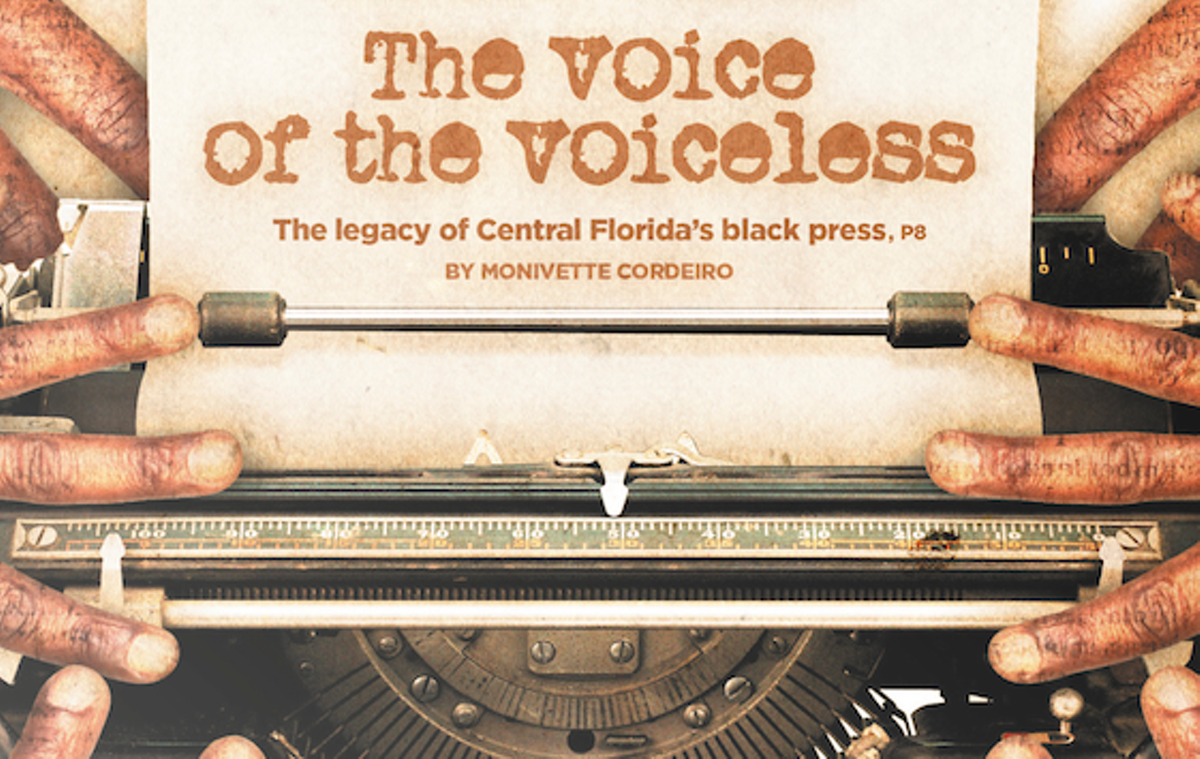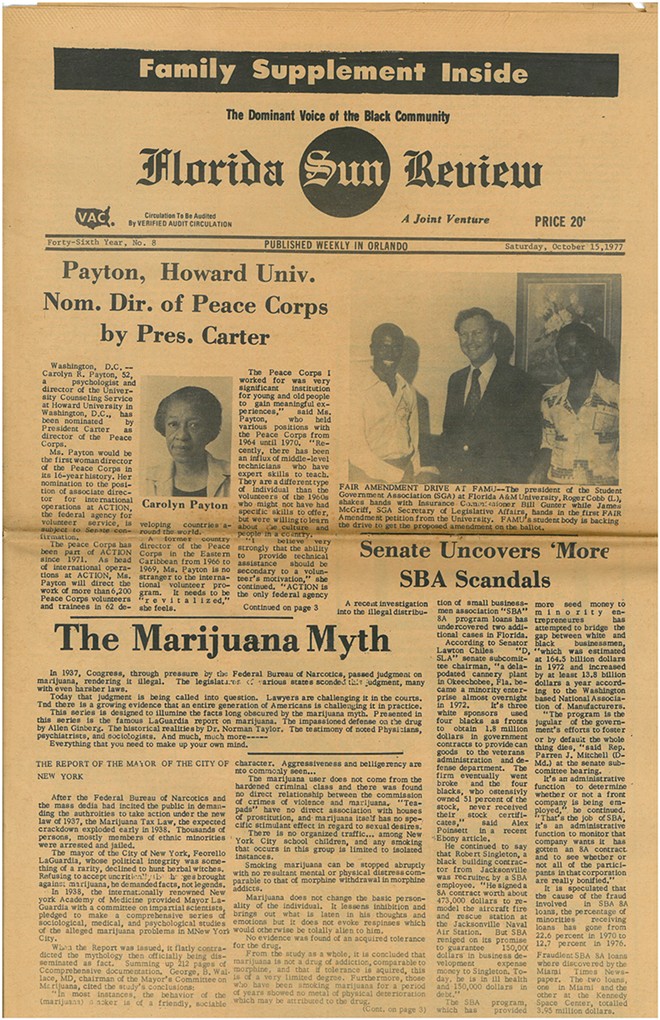When the Advocate stopped publishing in 1891, Henderson moved to Orlando, where the lines of segregation were harder to push through. He started another black newspaper called The Christian Recorder, later known as just The Recorder, in which he published articles arguing in favor of better education and voting rights for African-Americans. It operated until his death in 1915.
After that, no known black newspaper published in Orlando until 1931, well after the Ocoee Massacre, when J. Lawrence Bowden and his wife Lena Cowan Bowden founded the Florida Sun. At one point, according to Madison, it was called the Florida Sun and Mirror before it joined with a bimonthly publication called the Orlando Review, and was renamed the Florida Sun Review. In 1945, Benjamin C. Hubert founded another black Orlando newspaper, the Central Florida Times, but it closed four years later, writes black historian and Florida Sen. Geraldine Thompson in her manuscript "Toward the Paved Road."
Central Florida was a racial hotbed through the late '40s and early '50s. In 1949, the infamous case of the Groveland Four, in which four African-American men were wrongfully accused and later convicted of gang-raping a white woman in Lake County, made headlines. But those headlines were, according to a 2014 case study published by the John Jay College of Criminal Justice's Center on Media Crime and Justice, markedly biased against the black defendants. In fact, the publication notes, "mob journalism" actually made media reports on the case into a tool for the prosecution.
Harry T. Moore, a member of the NAACP and a pioneer for civil rights in Florida, was involved with the case until he and his wife, Harriette Moore, were murdered by a bomb placed under their home. His death was barely covered by the local media.
The 1970s saw a small expansion in Orlando's black press. While the Florida Sun and Mirror was being sold in 1975 and undergoing a name change, the Orlando Times was established in 1976 by four local professionals with no newspaper experience, says the son of one founder and the Times' current editor, Kevin Collins.
"Incidents before the early '70s caused the doctors and lawyers who started the paper to feel there was a void, a different side of the story not being told," he says. "The coverage the black community was getting was not going to be fair coverage, so we needed to provide our own. ... We became the voice, the eyes and the ears for our community."
Both papers, like other black publications across the country, became staples in African-American cultural institutions. Aside from community news, the papers included various opinion columns, sports news, and national and international wire reports about black people from the National Newspaper Publishers Association.
Through the '80s and '90s, the Times published stories on the Rodney King case, President Ronald Reagan's assault on affirmative action, a series on Orlando's black pioneers and the Rosewood Massacre. In 1994, another black newspaper, the Central Florida Advocate, was started by the Rev. Kevin Seraaj and his partners.
As a young journalist in Orlando, Rebekah McCloud worked for both the Times and the Review before becoming an educator. The subjects she covered varied from the beginning of the city's relationship with Disney to local officials like City Commissioner Nap Ford, but they always had one thing in common: They were told from a perspective that kept Orlando's black community at the forefront.
"What I found was when other people told our stories, they focused on the violence, but black people exist beyond that," says McCloud, who is now the director of the PRIME STEM project at UCF. "Writing for the black press gave me the opportunity to give a voice to my people."



















